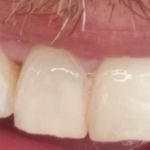How Often Should You Change Your Toothbrush for Better Oral Hygiene?
- 1. The Importance of Changing Your Toothbrush
- 2. How Often Should You Replace Your Toothbrush?
- 3. Signs Your Toothbrush Needs to Be Replaced
- 4. What Happens If You Don't Replace Your Toothbrush?
- 5. How to Choose the Right Toothbrush for Your Needs
- 6. Maintaining Oral Hygiene Beyond Your Toothbrush
1. The Importance of Changing Your Toothbrush
Changing your toothbrush regularly is a crucial aspect of maintaining good oral hygiene. Over time, the bristles on your toothbrush wear down and lose their effectiveness. A worn-out toothbrush is unable to clean your teeth as thoroughly, which can lead to plaque buildup, tooth decay, and gum disease. By replacing your toothbrush at the right intervals, you ensure that your teeth and gums remain in optimal health.
2. How Often Should You Replace Your Toothbrush?
According to dental professionals, it’s recommended to replace your toothbrush every three to four months. However, this timeline may vary depending on the condition of the toothbrush and your oral hygiene habits. Some factors can influence how quickly your toothbrush needs replacing:
2.1 Frequency of Use
If you brush your teeth more frequently (e.g., after every meal), your toothbrush may wear out faster, and you may need to replace it sooner. On the other hand, if you brush only once or twice a day, your toothbrush may last a bit longer.
2.2 Bristle Wear
One of the clearest signs that it's time to replace your toothbrush is if the bristles are frayed or bent. When bristles become splayed out or damaged, they can no longer reach all the surfaces of your teeth effectively.
2.3 Illness and Infection
If you’ve recently been ill, especially with a cold or flu, it’s a good idea to replace your toothbrush afterward to prevent reintroducing bacteria or viruses into your mouth. Similarly, if you’ve had a mouth infection, replacing your toothbrush can reduce the risk of reinfection.
3. Signs Your Toothbrush Needs to Be Replaced
It’s important to keep an eye on the condition of your toothbrush to determine when it’s time for a replacement. Here are some clear signs that your toothbrush needs to be replaced:
3.1 Worn Bristles
If the bristles are visibly bent, frayed, or splayed out, it’s a sign that your toothbrush is no longer doing an effective job at cleaning your teeth. Worn-out bristles are a major indicator that it’s time for a new toothbrush.
3.2 Foul Odor
A toothbrush that has an unpleasant smell may have accumulated bacteria. If this happens, it’s a clear sign that the brush should be replaced to avoid introducing germs back into your mouth.
3.3 Changes in Brushing Effectiveness
If you notice that your toothbrush doesn’t seem to clean your teeth as well as it used to, despite regular brushing, it may be time to replace it. A toothbrush with worn bristles won’t be as effective at removing plaque and bacteria.
4. What Happens If You Don't Replace Your Toothbrush?
Failing to replace your toothbrush regularly can lead to a variety of oral health issues. Over time, a worn toothbrush loses its ability to clean your teeth thoroughly, which can result in the buildup of plaque, tartar, and bacteria. This can contribute to several dental problems:
4.1 Gum Disease
Using a toothbrush with frayed bristles can irritate the gums, leading to inflammation, bleeding, and potential gum disease. Healthy gums are crucial for overall oral hygiene, and replacing your toothbrush helps protect them.
4.2 Tooth Decay
A toothbrush that doesn’t effectively remove plaque can lead to the accumulation of harmful bacteria in your mouth. This can increase your risk of tooth decay and cavities.
4.3 Increased Risk of Infection
A toothbrush that has been used for too long may harbor bacteria, fungi, and viruses. Continuing to use an old toothbrush can introduce these harmful microorganisms into your mouth, increasing the risk of infections.
5. How to Choose the Right Toothbrush for Your Needs
Choosing the right toothbrush is just as important as replacing it regularly. There are several factors to consider when selecting a toothbrush that’s best suited for your oral care needs:
5.1 Bristle Type
Soft bristles are recommended for most people, as they are gentle on the gums and effective at cleaning teeth. Hard bristles can be too abrasive, potentially damaging enamel and gums over time.
5.2 Size and Shape
The size and shape of the toothbrush head should allow you to reach all areas of your mouth, including the back teeth. A small, compact head is often ideal for maneuverability, especially for those with small mouths or tight spaces between teeth.
5.3 Manual vs. Electric
Both manual and electric toothbrushes can be effective for maintaining oral hygiene, but an electric toothbrush may be more beneficial for people with limited dexterity or those who want a more thorough cleaning. Electric brushes can help with plaque removal and offer a consistent brushing motion.
6. Maintaining Oral Hygiene Beyond Your Toothbrush
Good oral hygiene doesn’t rely on your toothbrush alone. To ensure your mouth stays healthy, it’s important to incorporate other practices into your daily routine:
6.1 Flossing
Flossing is essential for removing food particles and plaque from between your teeth, where a toothbrush may not be able to reach. Make flossing a part of your daily routine for better overall oral health.
6.2 Mouthwash
Using mouthwash can help kill bacteria and freshen your breath. Choose an antibacterial mouthwash to add an extra layer of protection against plaque buildup and gum disease.
6.3 Regular Dental Checkups
Even with good at-home care, regular dental checkups are important for catching any potential issues early. Your dentist can professionally clean your teeth and offer advice on maintaining oral hygiene.
At Dentistry Toothtruth, we offer a range of dental products and services to help you maintain optimal oral health. Click here to explore the best toothbrushes and oral care products for your needs.







 Maui Whitening Orlando4.0 (32 review)
Maui Whitening Orlando4.0 (32 review) Bloomington Southside Dental Care3.0 (26 review)
Bloomington Southside Dental Care3.0 (26 review) Christiana Dental Center4.0 (650 review)
Christiana Dental Center4.0 (650 review) Carolina Dental Arts - New Bern Ave4.0 (152 review)
Carolina Dental Arts - New Bern Ave4.0 (152 review) Equitas Health Short North Medical Center3.0 (96 review)
Equitas Health Short North Medical Center3.0 (96 review) Prosthodontics of Madison - Kendra Schaefer, DMD & Christine Roenitz, DMD4.0 (25 review)
Prosthodontics of Madison - Kendra Schaefer, DMD & Christine Roenitz, DMD4.0 (25 review) The Importance of Oral Health Education During Pregnancy for a Healthy Pregnancy
The Importance of Oral Health Education During Pregnancy for a Healthy Pregnancy Best Tips for Brushing Your Teeth Properly for Healthy Gums: Essential Techniques for Oral Health
Best Tips for Brushing Your Teeth Properly for Healthy Gums: Essential Techniques for Oral Health Why Skipping Dental Checkups Can Lead to Bigger Oral Health Problems
Why Skipping Dental Checkups Can Lead to Bigger Oral Health Problems Advantages of Porcelain Dental Restorations
Advantages of Porcelain Dental Restorations How Can Diabetes Cause Tooth and Gum Problems? Preventing and Managing Oral Health Issues
How Can Diabetes Cause Tooth and Gum Problems? Preventing and Managing Oral Health Issues Healthy Habits for Promoting Good Oral Health and Hygiene: Tips for a Healthy Smile
Healthy Habits for Promoting Good Oral Health and Hygiene: Tips for a Healthy Smile